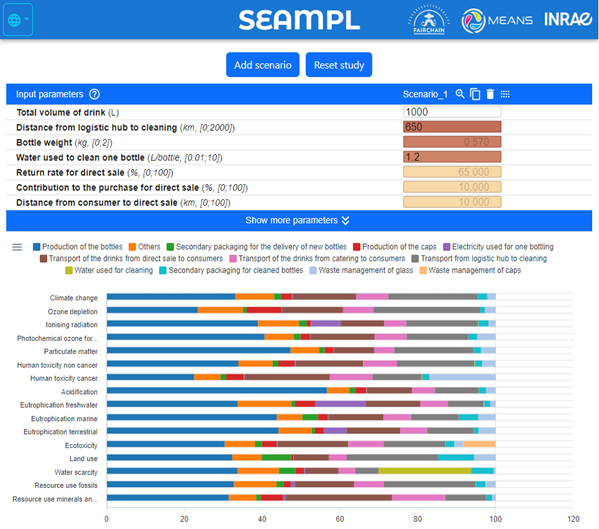SEAMPL: environmental impact assessment software to design packaging reuse systems
SEAMPL: environmental impact assessment software to design packaging reuse systems
Socioeconomic stakeholders often see life cycle assessment (LCA) as expensive, complex, and hard to interpret, leading to its limited use during early innovation stages. It’s often applied only at project end, offering little influence on ecodesign. Generic environmental data is commonly used in marketing despite potential variability. In the FAIRCHAIN project, a case study developed a whey-based fermented drink in reused bottles. SEAMPL was developed to help to consider environmental impacts for the distribution of the drink, and then in the development of any new reuse bottle system in France. SEAMPL uses simplified parametric models and global sensitivity analysis (Sobol indices) to minimize required data, reducing key variables from around 90 to under 10 depending on the system. This enables robust, quick scenario testing. To expand applicability, models were tailored to reuse system archetypes, created with stakeholder inputs. An online interface lets users identify system types, input minimal data, and view LCA results. Tested with FAIRCHAIN participants, SEAMPL could aid reuse initiatives in regions like Burgundy–Franche-Comté. Future plans include broader packaging types, country-specific adaptations, and integrating economic and social metrics.

